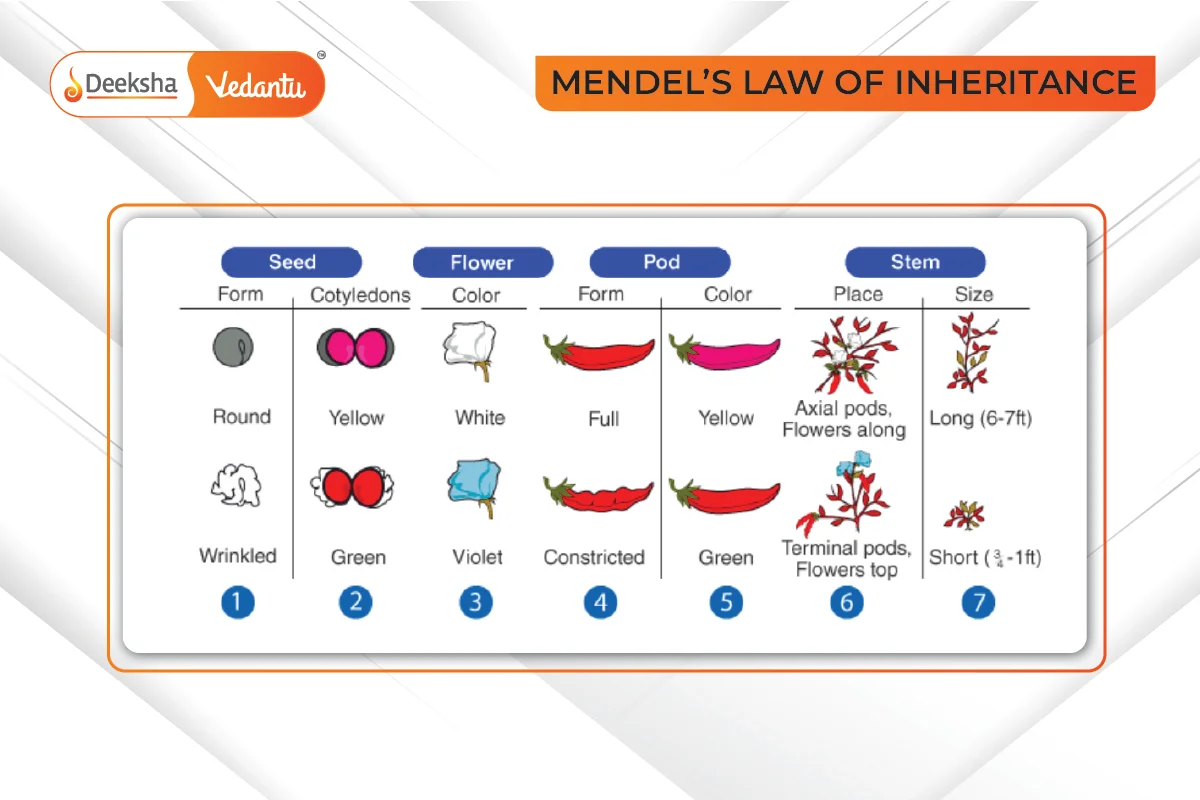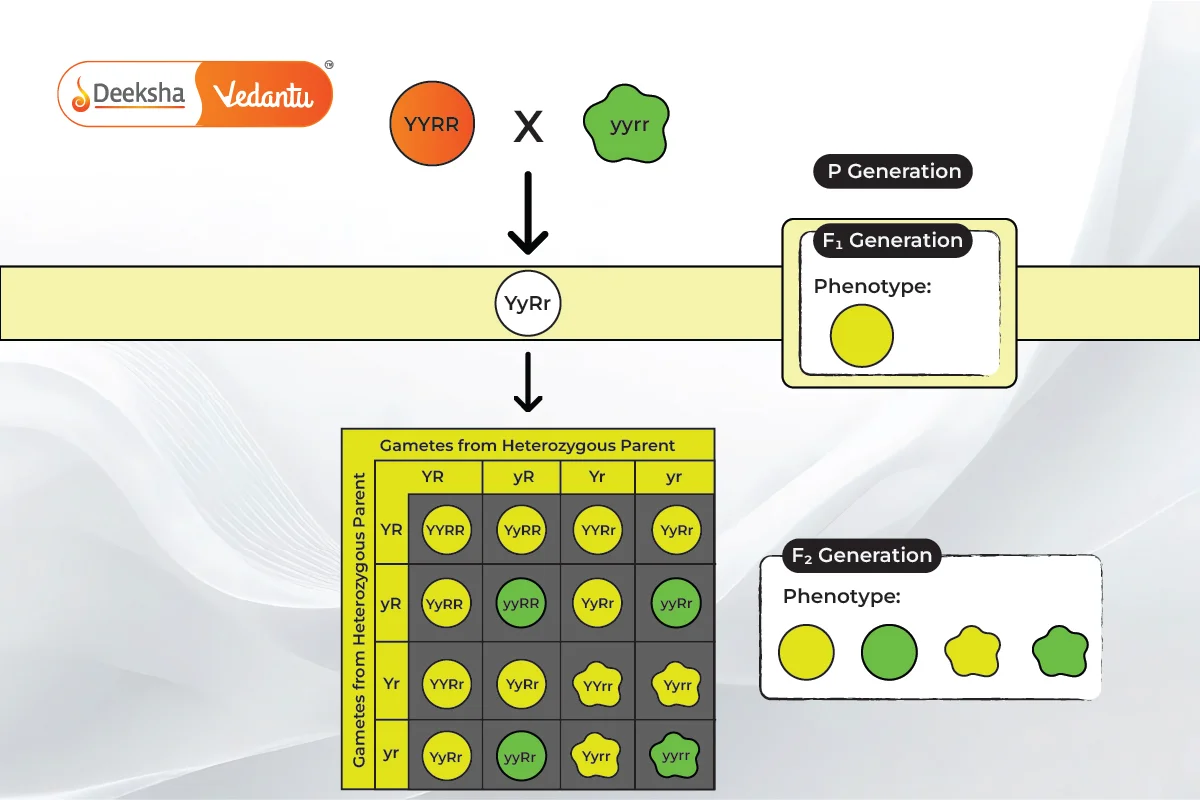What is Inheritance?
Inheritance in biology refers to the process through which genetic information is passed from parents to their offspring. This transmission of genetic characteristics is fundamental to the study of heredity and what makes offspring resemble their parents.

The Pioneer of Genetic Studies: Gregor Mendel
During the mid-19th century, Gregor Mendel, through his methodical experimentation on pea plants, deciphered key patterns in the transmission of hereditary traits, forming the cornerstone of modern genetics. These findings are encapsulated in what we now refer to as Mendel’s laws of inheritance.
Why Pea Plants?
Mendel chose pea plants for his experiments due to several advantageous traits:
- Ease of cultivation and maintenance.
- Clear, distinguishable characteristics that could be easily categorized.
- Control over pollination: Pea plants can self-pollinate, but Mendel could also manually cross-pollinate them to control the offspring.
- Short life cycle, allowing many generations to be studied over a short period.
Mendel’s Experimental Design
The Foundation of Mendel’s Work: True-breeding Pea Lines
Mendel’s experiments were conducted on pea plants that consistently showed the same traits generation after generation (true-breeding). By cross-pollinating these plants with others that had distinct traits, he observed how these traits appeared in the offspring, laying the groundwork for his conclusions on inheritance.
Types of Crosses Conducted by Mendel
- Monohybrid Cross: Focusing on one trait at a time, Mendel crossed plants differing in a single characteristic (like height).
- Dihybrid Cross: Here, Mendel observed the inheritance of two different traits (like seed shape and color) simultaneously.

Key Findings and Laws Derived From Mendel’s Experiments
1. Law of Dominance
This law states that when two opposing traits are inherited (one dominant and one recessive), the dominant trait will mask the recessive one, meaning the dominant trait is the one that is observable in the offspring.
2. Law of Segregation
According to this law, during the formation of gametes (sperm and egg), the paired alleles for a specific trait segregate (separate) randomly so that each gamete receives one allele of a pair. This explains the 50% chance of an offspring inheriting one of the two alleles from a parent.
3. Law of Independent Assortment
This law states that the genes for different traits can segregate independently during the formation of gametes. This independent segregation contributes to genetic variation among offspring.
Practical Applications and Impact of Mendel’s Laws
Mendel’s laws of inheritance have profound implications across various fields:
- Genetics and Breeding: These laws are fundamental in genetic research and breeding programs for plants and animals.
- Medicine: Understanding genetic inheritance is crucial for diagnosing, treating, and predicting the likelihood of genetic diseases.
- Conservation Biology: Helps in managing genetic diversity within populations to prevent extinction.
Conclusion
Gregor Mendel’s meticulous work with pea plants forms the bedrock of classical genetics. His findings on how traits are inherited laid the groundwork for future discoveries in genetics, revolutionizing our understanding of biology.
FAQs
This law explains how genes for different traits can separate independently during gamete formation, leading to new combinations of genes and contributing to genetic diversity.
A true-breeding plant is one that, when self-pollinated, consistently produces offspring with the same traits as the parent.
Pea plants have distinct, easily observable traits, they can self-pollinate and be cross-pollinated, and they have a short generation time, making them perfect for genetic studies.
Yes, Mendel’s laws apply to all sexually reproducing organisms, including humans. However, human genetics can be more complex due to multiple genes influencing most traits.
Mendel’s laws of inheritance provide the basic framework for understanding how traits are passed from parents to offspring, which is crucial for genetics, medicine, and evolutionary biology.












Get Social